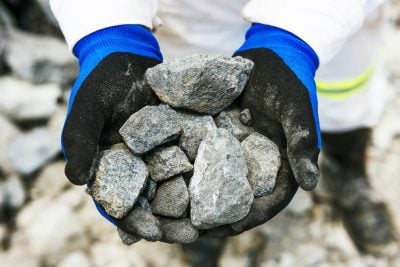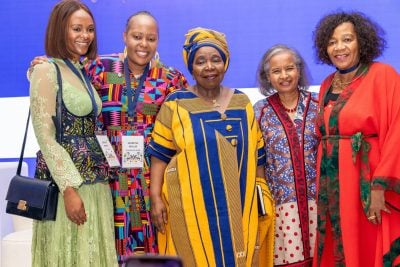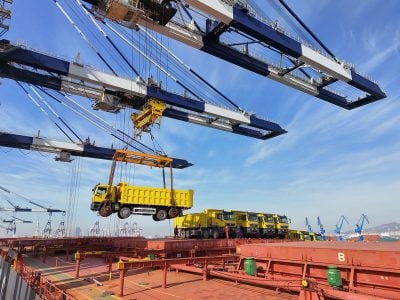As traders and fund managers returned to their desks following the Christmas break, many hoped for an early sign that global markets – and their clients’ fortunes – were heading in the right direction.
Few anticipated the meltdown that would erupt just days into the new year. As trading screens blazed with plunging stocks and ruined fortunes, the world’s attention turned once again to the eye of the storm: Shanghai.
In China’s financial capital, policymakers hit the panic button in a desperate attempt to quell another rout in domestic markets. Only months since China’s last stock market crash, the vulnerabilities in the financial system have left observers openly questioning how much fuel is left in the tank of China’s “economic miracle”.
For African politicians who have hitched their nations’ fortunes to China’s wagon, this ought to be a nervous time. After years of blossoming support, China’s regular market turmoil – and the loss of confidence in its economic rise – is ushering in lean times. That poses significant dangers for a continent which has become ever more dependent on its largest trading partner.
By 2014, China’s investment stock in Africa had surpassed $30bn, some 60 times more than 2000 levels, according to a government official. Over a million Chinese are thought to have migrated to the continent to seek out economic opportunities. With China’s economy slowing to 6.9% this year – the lowest rate in 25 years – and its appetite for commodities continuing to wane, many are asking whether Africa’s beleaguered economies are fatally tied to a struggling giant.
Yet for all the bearish sentiment towards China, the last 12 months has also been defined by relentless outwards expansion. From the IMF’s approval of the yuan as a reserve currency to President Xi Jinping’s opulent state visits to Britain and the US, there are plentiful signs that in the international sphere at least, China’s ambitions are very much intact.
In December, that message was driven home for an African audience. As policymakers from across the continent gathered in Johannesburg for the sixth Forum on China Africa Cooperation (FOCAC), the summit seemed calibrated with one message in mind – ignore the financial turmoil, China will deliver for Africa.
If the blandly worded memoranda from the meeting were not enough to reassure sceptics, the numbers on offer seem tailor-made to win them over. An eye-watering $60bn in support – including some $35bn of preferential loans and export credits – has been pledged.
Among pundits tracking the relationship, FOCAC is being talked of as a game-changer. But the question remains whether the pledges are symbolic – designed to preserve China’s political and diplomatic clout on the continent – or a cohesive plan to dramatically ramp up relations.
Thembinkosi Gcoyi, managing director at Frontline Africa Consulting and a former South African economic counsellor in Beijing, joined many in expressing surprise at the size of the pledges.
“$60bn is a significant improvement on the previous summit. I was certainly surprised. In general everybody was of the view that the slowdown in China represented maybe the start of a downward trend in the relationship.”
Those figures have since been subjected to a great deal of scrutiny. Kai Xue, a Beijing-based lawyer and Africa expert at DeHeng Law Offices, calculates that the pledges represent around a 50% boost to 2012’s figures. Just as important, he says, are the targets of those pledges.
“The increased commitments have been a trend since earlier FOCAC summits, but that 50% is quite significant. The other major trend is the increasing emphasis on greenfield investments. That’s a departure in the sense that economic relations in the last rounds have been tied to infrastructure investments”.
After over a decade of the controversial “Angola model”, under which major infrastructure projects were traded for commodities, those behind FOCAC seem intent on delivering a more progressive agenda. Could a relationship long dependent on China’s appetite for Africa’s resources give way to a mature trading partnership?

A manufacturing renaissance?
On the outskirts of Addis Ababa, Ethiopia, sits a shoe factory that represents both the fruits of a past FOCAC summit and a vision for the future of China-Africa relations. The Huajian shoe factory, which opened in January 2012, employs over 3,000 locals and is hoping to continue its expansion.
The venture, which received the support of the China-Africa Development Fund, a recipient of $5bn from this year’s summit, stands as an example of the potential for more sophisticated commercial ties. With Africa’s exports to China falling 38% to $67bn last year, there is a pressing need to move beyond the mere export of commodities.
Helen Hai, then vice-president of Huajian, now chief executive of the Made in Africa initiative and a UN industrialisation ambassador, says that 2015’s FOCAC summit represents an endorsement of the economic model that she helped pioneer.
“If you look at the UN’s Sustainable Development Goals, the big change is to focus on economic transformation. The FOCAC presidency’s message is really echoing this global change. 20 years ago China-Africa relations were focusing on resources. And the next ten years focused on infrastructure. But if you look at this year’s projects, the purpose is to support Africa to develop manufacturing and agriculture. This is economic development”.
For Hai, the recent summit represented a golden opportunity to preach the doctrine of what she calls “win-win” development. She used the enthusiasm around the summit to sign deals promoting industrialisation in Djibouti, Nigeria and Senegal. She has also been in talks with both the Chinese and Hong Kong textile associations in a bid to woo their members to the continent.
That enthusiasm has been replicated at the highest levels of policymaking. As part of the $60bn in support, around $10bn will go to the establishment of a new industrialisation fund, probably targeting new, or “greenfield” investments. That could be a timely reaction to disappointing figures which showed Chinese investment in such projects falling from $3.54bn to $568m between the first halves of 2014 and 2015.
The support, says Frontline Africa’s Thembinkosi Gcoyi, is beginning to resonate with ambitious Chinese manufacturers. Struggling under the costs of higher employee salaries and fierce regional competition, many are seeing international expansion as essential to their prospects. The China Labour Bulletin reports that there has been double-digit growth in the national average annual wage for urban employees since 2004.
“More and more Chinese will continue emphasising investment into productive sectors of the African economies. Where there’s the potential for manufacturing capability, we’re going to see a lot of Chinese companies coming in. This will be the case especially where domestic competitiveness is weakening with the rise of labour costs and with South-East Asian countries becoming more attractive,” he says.
By shifting its lower paid manufacturing jobs abroad, Hai believes that China can support its own move towards higher-value research and development, areas in which regional rivals Japan and South Korea have the upper hand. FOCAC, she says, will “pave the way” for private businesses to stake their futures in Africa.
“At this stage it feeds China’s development ideas very well. China is moving from a labour-intensive economy to a more capital-intensive economy. There’s about 85m jobs which have to be relocated out of China whether they like it or not.”
The intense competition between Chinese firms for African projects is pushing companies beyond infrastructure. With Chinese companies already accounting for half of the revenues from construction and engineering projects on the continent, according to Xue, moving into new markets is a priority. Manufacturing sectors previously constrained by state monopolies, such as cement, could prove especially welcoming to new competition – and profitable to early movers.

Sizing up China’s involvement
For all the excitement around mutually beneficial ties, a yawning gap between rhetoric and reality clouds some areas of the emerging relationship.
Having visited Chinese agricultural projects on the continent since the 1980s, Deborah Brautigam, director of the China-Africa Research Initiative at John Hopkins University, long viewed dramatic claims of “land-grabs” with a pinch of salt.
Trawling though purported deals with students and colleagues, her latest book – Will Africa Feed China? – concludes that China’s agricultural engagement in Africa is far smaller than previous estimates. Take African land in Chinese company ownership – previously estimated at some 6m hectares, the real figure is closer to 240,000.
“In general there is a tendency to overestimate the degree of involvement of almost everything China is doing in Africa. An announcement might be made where a company hopes to spend $2bn. When they start, they realise it’s difficult for one reason or another and it gets scaled back. But the initial report about the $2bn is still out there,” Brautigam says.
Companies occasionally exaggerate the size of their investments to win local support, while African governments are understandably keen to boast to the electorate about their investment prospects.
“There’s always a big gap between initial interest and final results – it’s like getting married. There’s a lot of courtship before church,” she says.
Could FOCAC’s pledges prove similarly exaggerated? Brautigam believes that the input of senior Beijing policymakers makes this unlikely, but cautions that African governments alone may not have the capacity to absorb the loans that China is proposing.
“I think they’ll try (to make the loans), because they’ve made the pledge and the policy banks will try to shovel the money out of the door. I’ll be watching and tracking it, but I can’t see that many countries have the room – even if it’s concessional – to absorb a lot of new finance. There’s certainly a lot of need, but it’s the repaying that’s the problem.”
Instead, the policy banks could extend the disbursal period beyond the three-year span of FOCAC. Alternatively, private companies on the hunt for African exposure could prove willing recipients. While Xue expects the pledges to be met or even exceeded based on previous rounds, he argues that the gatekeepers of the funds – the heads of the policy banks – are driven by the goal of making money. Gone are the days, says Gcoyi, when China would throw good money after bad in a bid to meet arbitrary targets.
“The Chinese are very astute when it comes to managing risk. From conversations I’ve been privy to when South African entities try to negotiate financing, those discussions can be quite arduous.”
That fiscal conservatism is also being driven by reforms in state-owned companies, many of which are active on the continent.
The Communist Party released a key report in September plotting a way forward for the improvement of bloated and inefficient enterprises, including changes to director appointments and possible stock market listings. As a result, some state-owned companies are holding back on investment until their futures are secure.
Those reforms are also taking place against the dramatic backdrop of the Communist Party’s anti-corruption purges. In October, the Financial Times reported that renowned African dealmaker Sam Pa had been held by authorities.

The long haul
Regardless of how much support is ultimately delivered under FOCAC, there is a consensus that the nuances of the relationship are changing. For Helen Hai, and other advocates of industrialisation, African countries must prepare themselves to welcome the next wave of Chinese investment if they are avoid being trapped in the ebb and flow of the commodities cycle.
From preparing enterprise zones to setting up workable infrastructure projects, much will depend on whether African countries are prepared to make the difficult choices to diversify their economies.
With the Chinese presence on the continent ever more apparent, from street traders in Dakar to suited executives in Johannesburg, people-to-people ties will come to play an ever more important role.
The expansion of China’s “soft power” continues to accompany tighter economic links, from the rapid spread of government news service CCTV to the thousands of African students flocking to Chinese universities.
A successful relationship originally rooted in the politics of the anti-colonial era and latterly driven by economics could hinge on these emerging cultural links.
If Africans do not feel that they are capitalising on the economic relationship, says Thembinkosi Gcoyi, cultural ties could be polluted by misunderstanding and paranoia.
“The key thing for me is to what extent we create our own businesses from Chinese resources. Up to now it’s been a dismal failure. With all the money I don’t think we’ve created enough winners that are locally owned and can become drivers of their economies. That will require a lot of focus in the medium to long term.”
David Thomas
Want to continue reading? Subscribe today.
You've read all your free articles for this month! Subscribe now to enjoy full access to our content.
Digital Monthly
£8.00 / month
Receive full unlimited access to our articles, opinions, podcasts and more.
Digital Yearly
£70.00 / year
Our best value offer - save £26 and gain access to all of our digital content for an entire year!
 Sign in with Google
Sign in with Google 


